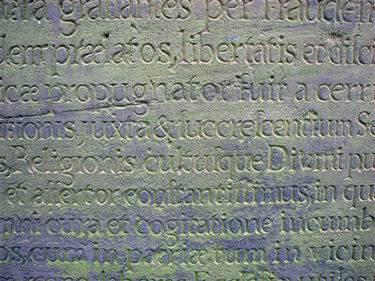Oxford Considers Removing Homer and Virgil
Classics, Der Untergang des Abenlandes, Homer, Oxford, Virgil
You are a member of the Classics faculty at Oxford. It has been recognized that the influence of Modernism has significantly reduced serious study of Latin and Greek at secondary schools in Britain and the performance gap between well-prepared students from a small number of elite schools and the generality of students, particularly between male and female students has grown conspicuous.
How do you suggest this national educational decline should be addressed?
[There is on the table] a proposal by the Classics faculty to remove the study of Homer’s Iliad and Virgil’s Aeneid from the Mods syllabus, a decision which has surprised many across the faculty.
This proposal forms part of a series of reforms aimed to modernise the first stage of the Classics degree, known as Moderations (Mods), which take place during Hilary term of second year for all students taking Classics courses across the university.
The Mods course, which is assessed by a set of ten exams at the end of Hilary, has been increasingly criticised in recent years, due to the attainment gaps found between male and female candidates, as well as between candidates who have studied Latin and/or Greek to A-Level (Course I) and those who have not (Course II).
The removal of Virgil and Homer papers, which take up two out of the ten Mods papers, have been marketed as a move that will reduce the attainment gaps and thus improve access to the subject. However many have questioned why the solution to this problem involves the removal of Homer and Virgil.
There have been a number of other recent reforms proposed by the faculty, including changes to the way in which students are streamed based on previous levels of study as well as an increase in the amount of language tuition available to all Classicists. However, this most recent reform has accused of being an unnecessary step by members of the Classics faculty who claim that the removal of the compulsory study of Homer and Virgil would result in an incomplete and less fulfilling course of Classical study.
———————–
There were, and there are still, here and there even today, some who would take a different approach.
“You know,†[the headmaster] said, “we are starting this year with fifteen fewer classical specialists than we had last term?â€
“I thought that would be about the number.â€
“As you know I’m an old Greats man myself. I deplore it as much as you do. But what are we to do? Parents are not interested in producing the ‘complete man’ any more. They want to qualify their boys for jobs in the modern world. You can hardly blame them, can you?â€
“Oh yes,†said Scott-King. “I can and do.â€
“I always say you are a much more important man here than I am. One couldn’t conceive of Granchester without Scott-King. But has it ever occurred to you that a time may come when there will be no more classical boys at all?â€
“Oh yes. Often.â€
“What I was going to suggest was—I wonder if you will consider taking some other subject as well as the classics? History, for example, preferably economic history?â€
“No, headmaster.â€
“But, you know, there may be something of a crisis ahead.â€
“Yes, headmaster.â€
“Then what do you intend to do?â€
“If you approve, headmaster, I will stay as I am here as long as any boy wants to read the classics. I think it would be very wicked indeed to do anything to fit a boy for the modern world.â€
— Evelyn Waugh, Scott-King’s Modern Europe, 1947.




